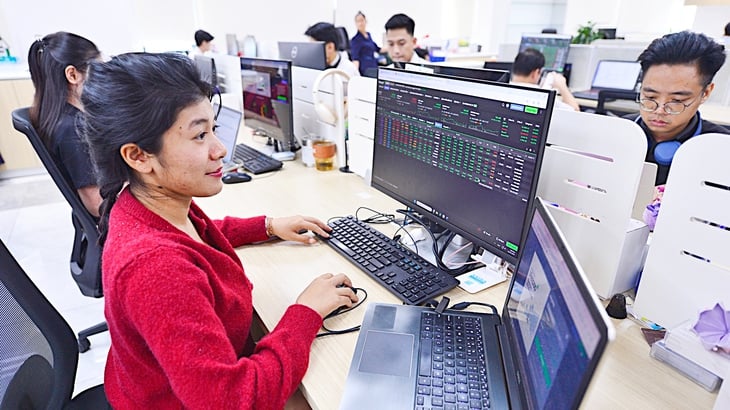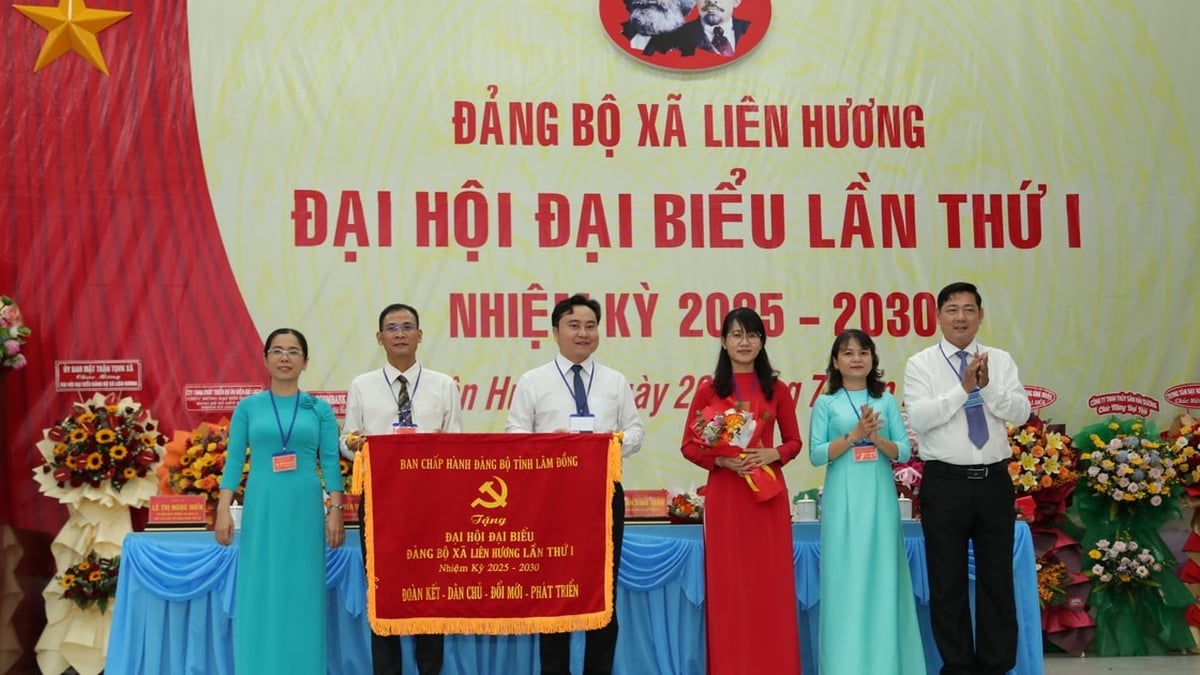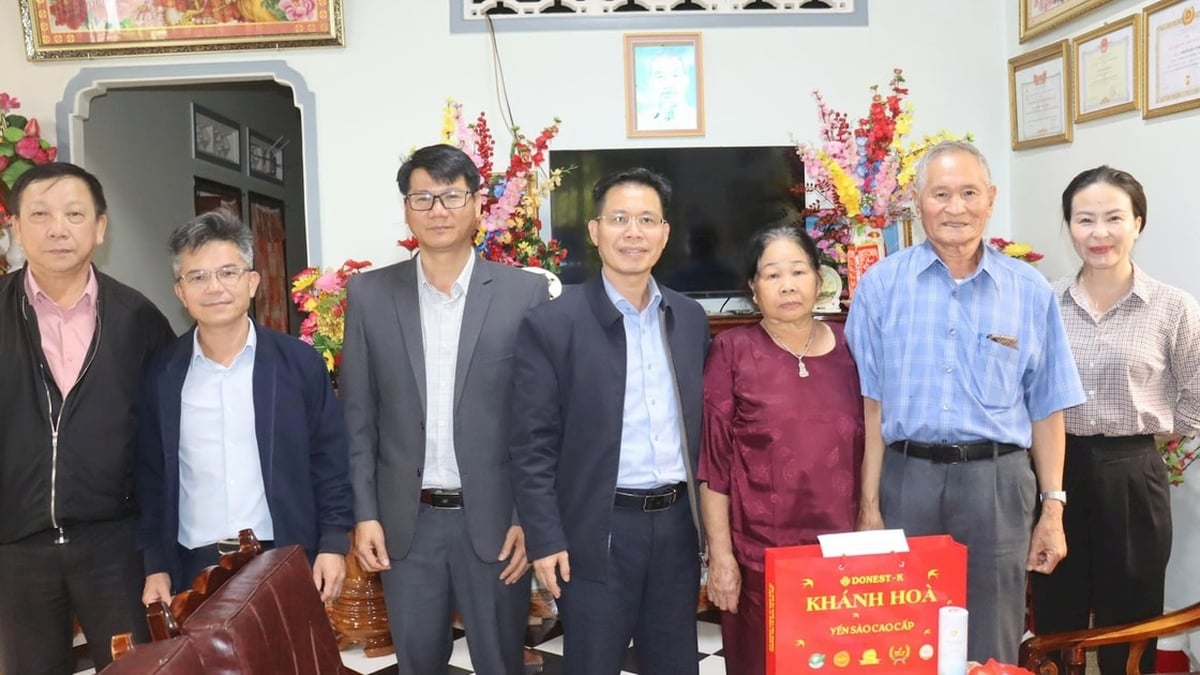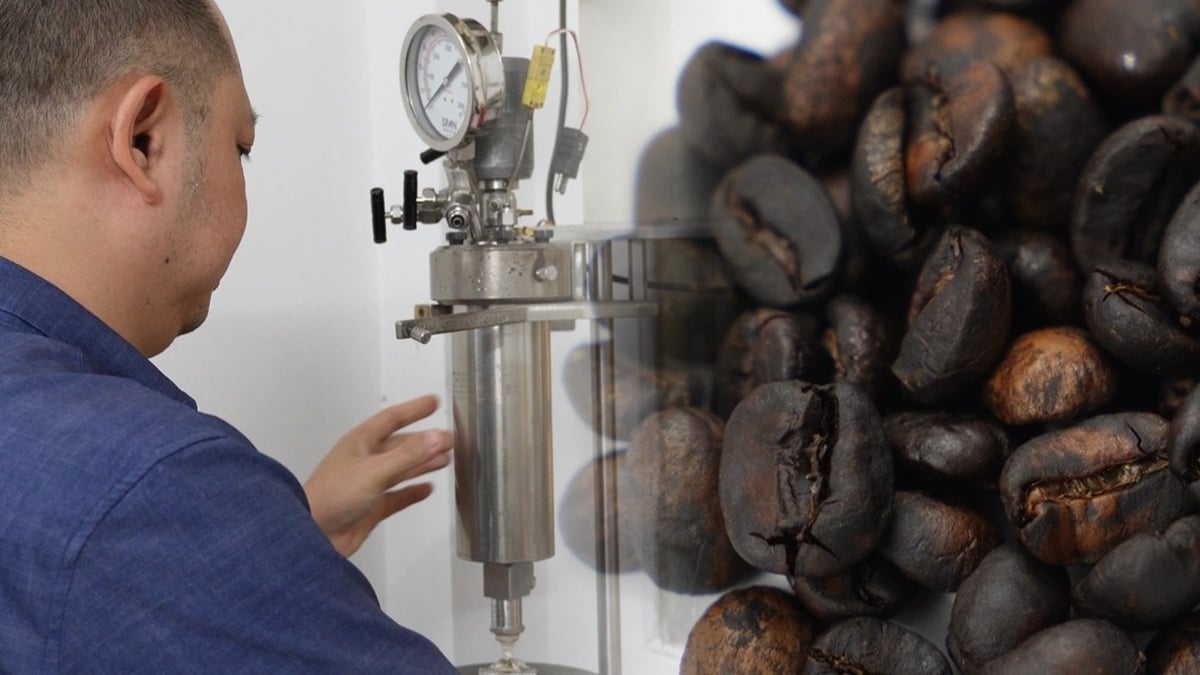
Many experts and investors believe that tax policies should contribute to encouraging people to invest in stocks and promote capital market development - Photo: QUANG DINH
After the Ministry of Finance issued a proposal to amend the Law on Personal Income Tax (replacement), including personal income tax on securities trading activities, many opinions said that the tax rate of 20%/profit is quite high, discouraging people from participating in the stock market, an important capital channel for businesses.
Need tax policy to encourage stock market
Speaking to Tuoi Tre, the general director of a credit rating company said that the 20% tax rate "levied" on investment profits is not a new figure. Previously, the Personal Income Tax Law allowed individuals to choose between two methods: temporarily paying 0.1% on the transfer value, or applying a 20% tax rate on the income.
In particular, the 0.1% method on the transfer value is applied uniformly for convenience and to avoid loss of revenue. According to this person, technically, securities companies have the ability to record the cost price and profit for each stock code, so collecting tax on profit is no longer an obstacle. "The problem is that the 20% tax rate is too high, discouraging people from investing in stocks," this person said.
Citing the draft content "If the purchase price and costs cannot be determined, the tax will be calculated at 0.1% of the selling price for each transfer...", Mr. Phan Phuong Nam, deputy head of the commercial law department of Ho Chi Minh City University of Law, proposed maintaining both options for investors to choose from, while at the same time building a roadmap to gradually switch to taxing net profits to increase fairness.
According to Mr. Nam, if only a 20% tax rate is applied, investors should be allowed to transfer losses similar to businesses, because many people invest for 4-5 years but only make a profit after 1 year.
"In addition, it is necessary to consider applying family deductions to professional investors who have no other source of income besides securities, to ensure a more reasonable and fair tax policy," said Mr. Nam.
Meanwhile, Mr. Nguyen Hoang Hai, Vice President of the Vietnam Association of Financial Investors (VAFI), said that separating and allocating interest costs for securities investment activities is not simple.
"If a person borrows VND5 billion to invest in many stocks but only sells one, how will the allocation be accepted by the tax authority? Furthermore, many people use real estate or other assets as collateral to borrow capital to invest in stocks, making it more complicated to track expenses," said Mr. Hai.
Should "nurture" the source of income
The leader of a securities company believes that with a young stock market like Vietnam, it is necessary to encourage and nurture revenue sources instead of... collecting them all. "The tax authority needs to "nurture revenue sources" to have larger revenue sources in the future because this market still has a lot of room for development," he suggested.
According to Mr. Nguyen The Minh - Director of Analysis for Individual Clients, Yuanta Vietnam Securities Company, taxing based on profits is in line with international practice, reflecting the true nature of investment activities. However, Mr. Minh proposed applying a tax rate mechanism that gradually decreases over the holding period. Specifically, investors holding stocks for less than 1 year may be subject to a higher tax rate.
Meanwhile, long-term investments – for example, over 10 years – should be exempt from taxes. “This approach not only helps the State secure revenue from short-term speculative activities, but also creates a clear incentive to encourage long-term investors to stick with the market, contributing to building a more sustainable and stable financial ecosystem,” Minh said.
Many investors also expressed concern about the proposal to collect taxes on stock dividends and bonus shares at the time of receipt instead of waiting until transfer.
"The proposal to impose tax at the time of dividend payment in shares as in the draft will make this option less attractive, eliminating an effective tool for businesses to have resources to reinvest in production and business activities," said Mr. Dau Anh Tuan - Deputy General Secretary of VCCI - in a document commenting on the draft.
According to data from the tax authority, in the period 2016-2024, the actual personal income tax collected from stock dividends will reach about 1,318 billion VND, while if collected immediately upon distribution, the estimated figure could be about 17,420 billion VND.
According to VCCI representative, this data shows that the majority of shareholders have chosen to hold shares for the long term.
"Thus, this "uncollected" more than 10,000 billion VND is actually in the enterprise, serving reinvestment in production and business, creating jobs, indirectly contributing to GDP growth and a stable and sustainable tax source for the budget in the long term. If forced to collect immediately, this capital flow may be withdrawn, reducing the ability of enterprises to reinvest and develop," he warned.
Undermining long-term investment incentives
According to VCCI, paying dividends in shares does not create real income for shareholders at the time of receiving dividends. In essence, this is just a technical adjustment in the capital structure, increasing the number of outstanding shares but not increasing the total value of shareholders' assets.
Thus, at the time of paying dividends in shares, shareholders have not received any benefits from this. If taxes are collected at this time, it will create financial pressure and liquidity risks for investors, including large investors and small investors.
In addition, collecting taxes at the time shareholders receive bonus shares reduces the attractiveness of long-term investment methods because investors have to pay taxes before actually receiving profits.
Encourage market development instead of letting cash flow "freeze"
Many investors emphasize the role of tax policy in directing cash flow. Without incentives, capital will continue to "lie still" in safes or banks or flow into real estate...
Mr. V. Duong (formerly Nam Dinh ), an investor, said that after many years of losses due to market fluctuations, with a small profit this year, many investors, including him, are worried that they will have to pay an additional 20% personal income tax.
"This discourages many people and reduces investment motivation," said Mr. Duong, adding that tax policy must both encourage people to invest and accumulate assets, while supporting capital flows for businesses and promoting economic growth.
According to Ms. Nguyen Ngoc Ha (Hanoi), the current taxation method does not properly reflect the cyclical nature and risks of the stock market.
"An investor may have lost billions of dong last year, but just made a profit of a few hundred million this year and was immediately taxed at 20%. With such a mechanism, it is very difficult for individual investors to recover their capital and pursue long-term investment," said Ms. Ha, adding that the stock market is inherently volatile, so a more flexible, fair, and practical tax policy is needed.
Sharing the same view, Ms. Nguyen Mien (Hanoi) emphasized that tax should only be a tool to support market development, not a factor that increases psychological risks. Although taxing profits is reasonable in terms of fairness - that is, only collecting when there is income - the proposed 20% rate is too high. "This tax rate not only affects liquidity but also erodes investor confidence," Ms. Mien affirmed.
According to investors, the tax rate should be adjusted in line with international practice, limited to 3-5% of net profits. At the same time, it is necessary to apply a tax incentive mechanism based on the holding period, like the model in the US - where long-term investors enjoy lower tax rates or even exemptions.
Source: https://tuoitre.vn/de-xuat-thu-thue-20-lai-chung-khoan-khong-khuyen-khich-dau-tu-chung-khoan-20250724223720377.htm


































































![[Photo] National Assembly Chairman Tran Thanh Man receives Chairman of Morocco-Vietnam Friendship Association](https://vphoto.vietnam.vn/thumb/402x226/vietnam/resource/IMAGE/2025/7/26/b5fb486562044db9a5e95efb6dc6a263)



































Comment (0)